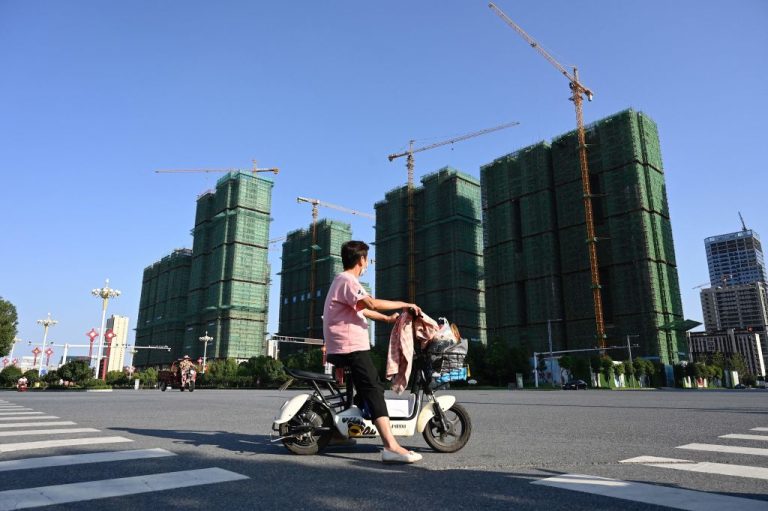Evergrande Group, the embattled Chinese real estate giant, has once again become the focus of international attention after it announced on July 22 that three of its top executives had been asked to step down.
The trio, comprised of CEO Pan Darong, Director Xia Haijun and Chief Financial Officer Ke Peng, were asked to resign after an internal investigation found that they had misused approximately $2 billion (13.4 billion yuan) obtained from third-party loans.
After the announcement was made, the three executives said they would “immediately accept the request” from the company’s board of directors and announced their official resignations on their Weibo social media accounts.
MORE ON EVERGRANDE’S FINANCIAL TURMOIL:
- With Both Small and Large Banks in Trouble, Will China’s Debt Crisis Blow Up?
- China Evergrande Group Secures Extension On Defaulted Bond
- Evergrande Fails to Make Overdue Coupon Payments for Bondholders
- Chinese Protesting Frozen Bank Accounts Just the Tip of the Iceberg in Beijing’s Widening Financial Crisis
$300 billion in debt
After a $2.6 billion deal fell through last October, Evergrande’s total debt and liabilities grew to reach US$300 billion — resulting in the enterprise defaulting on the huge sum late last year. In a desperate bid to stabilize itself, Evergrande submitted a request to the Guangdong provincial government asking for its major assets to be restructured.
To further complicate matters, the Hong Kong Stock Exchange announced on July 11 that a number of Chinese real estate and property management stocks would be removed from the Hang Seng Index. Among them were China’s Evergrande Group and Evergrande Property Co., Ltd.
Success
You are now signed up for our newsletter
Success
Check your email to complete sign up
According to industry experts cited by the Chinese edition of “Radio France Internationale” (RFI), the Hang Seng removal signals that Evergrande may very well be “completely dead,” as it means the struggling companies are no longer attractive to both international and domestic investors.
The Lehman Brothers of China?
With the Chinese economy straining under the pressure of Beijing’s unrelenting “zero-COVID” policies and the ongoing Russia-Ukraine war, Evergrande’s financial turmoil has only continued to grow as industrial output dips to the lowest levels in decades. After the enterprise defaulted on its debt in December 2021, many investors saw themselves out millions of dollars.
In an attempt to recoup some of the losses, struggling real estate developers have attempted to increase housing prices — resulting in a growing number of customers being unable to afford new properties, or opting to stop buying altogether.
“When China’s residential market emerges from this correction, it may be changed forever,” Gary Ng, Asia-Pacific economist at Natixis told CNBC. “We anticipate fewer developers will be able to employ the highly leveraged, fast-churn strategy that brought past success.”
Other experts have even compared Evergrande’s financial crisis to that of the now-fallen American firm: the Lehman Brothers. The global banking firm, which was once the fourth largest in the U.S., declared bankruptcy in 2008 and triggered a nationwide recession in the U.S.
In order to prevent the Lehman Group’s demise from spreading to the whole country, the U.S. government issued bail-outs to prevent other financial institutions from a similar fate. However, this is very rare in capitalist countries that use market operations as leverage, experts told RFI.
Beijing will not come to the rescue
To make matters worse for Evergrande, it appears that China’s central government has “no intention of maintaining economic growth at all costs,” meaning the regime may not be willing to prop up China’s struggling real estate sector, or bail out Evergrande.
In a recent speech given before the World Economic Forum (WEF), by Chinese Premier Li Keqiang, he stressed the importance of not resorting to “flooding water” (大水漫灌) — that is, using monetary policy to endlessly prop up the economy.
“There will be no super-large stimulus measures, super-money issuance, and future advances for excessive growth targets,” Li said.
Analysts pointed out that Li’s words should be heeded as a warning to other struggling Chinese companies that they should not rely on the government to restructure their debt should they default on their debt.
When Li met virtually with global leaders at the WEF event held on July 19, he admitted that in the second quarter of this year, “China’s economy was hit by a new round of epidemic control measures and other unexpected factors,” resulting in a sudden blow to the overall national economy.
Li added that although China’s major economic indicators fell sharply in April, the Chinese government will “resolutely respond and adjust in a timely manner,” describing how the government will engage in growing other “more prominent sectors.”
In the WEF speech, Li twice cautioned against the “floodwater” measures, affirming China’s macroeconomic views for a post-pandemic era. The premier noted that since 2020, his country’s policies in response to major events have been “reasonable in scale” — and have been successful in preventing large waves of inflation.
Adapted from the original commentary piece written by the Chinese edition of Radio France Internationale.














